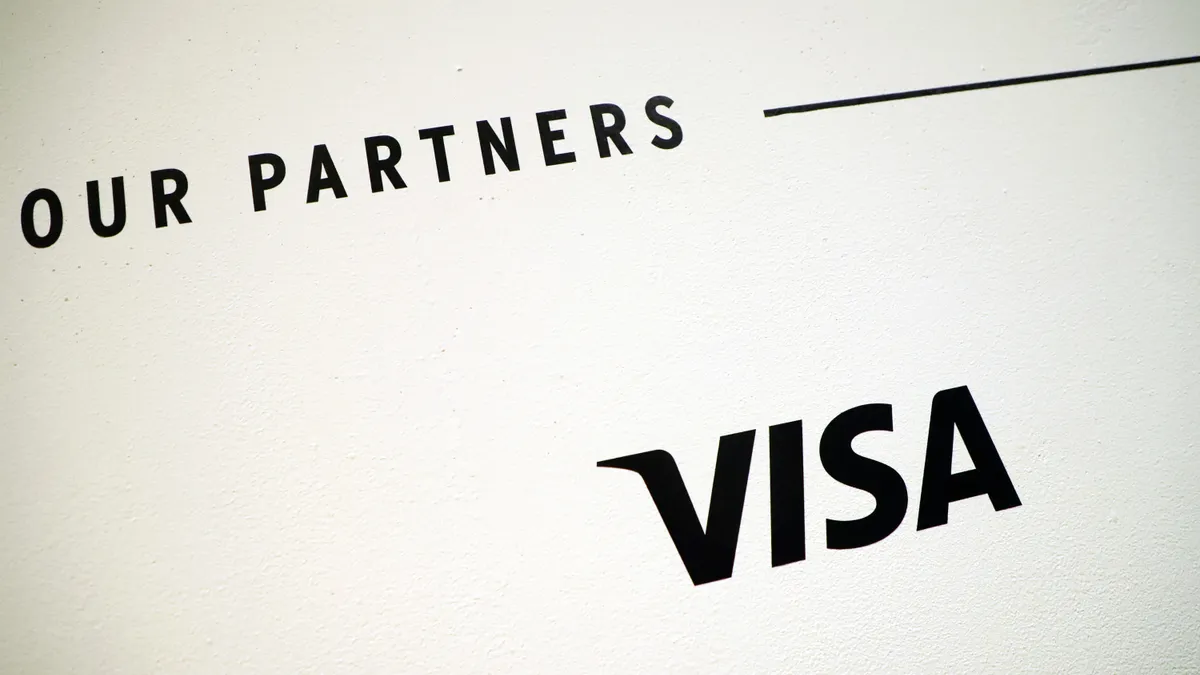The spat between retail juggernaut Amazon and card giant Visa over credit card fees levied in the U.K. may have ramifications for rival credit card companies such as Mastercard, American Express, and Discover, according to analysts.
At issue in the Amazon-Visa dispute are interchange fees, also known as 'swipe fee,' which merchants pay to banks every time a consumer makes a purchase through a credit or a debit card. The fees are set by Visa and the other credit card issuers. They have been controversial for years.
While Senator Richard Durbin (D-IL) led the campaign to pass a 2010 law that capped debit card fees, there have been calls for its repeal as critics argue it has done more harm than good. The festering dispute over interchange fees has been given new life thanks to the Amazon-Visa row.
"It shines a light, a potentially negative light from a retailer's perspective, on a fee income generator that's, you know, the lifeblood of the credit card industry," David Morris, an analyst at Insider Intelligence, said in an interview. "The larger issue is the fact that Amazon is targeting the interchange fees in a way that could have broader ramifications for the entire industry. Other participants like Discover and Mastercard also make a great deal of money on credit card interchange and discount fees."
Amazon, whose e-commerce website is the Internet's most visited, announced earlier this month that it would no longer accept payments from Visa credit cards that originate in the U.K. after Jan. 19 because of concerns about paying excessive interchange fees for those card transactions.
Visa is getting squeezed by Amazon on multiple fronts. Earlier this year, Amazon announced that it would levy surcharges on Visa credit transactions in Australia and Singapore.
Wall Street analysts have argued that Amazon's fee fight overseas is a "negotiating tactic" to lower costs in the U.S. and other major markets. While that could put pressure on other card companies' interchange rates as well, it could also be a benefit if they win more Amazon business.
Seattle-based Amazon is reportedly in talks with Mastercard about taking Visa's place as a partner in a co-branded card. A spokesman for Mastercard referred questions about the discussions to Amazon, which didn't respond to a request for comment. Visa also didn't respond to requests for comment.
When it comes to market share for U.S. general purpose credit card use, Visa is by far the leader, according to the industry research firm Nilson Report. For last year, Visa had a 53.7% market share while Mastercard had a 23.2% share, American Express had a 19.2% share and Discover Financial had a 4.0% share, according to a February report from Nilson.
Amazon's approach could also be a benefit for some of Visa's non-card rivals.
"Amazon continues to push back on the fees it's paying for payment processing, and this could have been one of the reasons Amazon partnered with PayPal to accept Venmo purchases at Amazon starting next year," wrote Kenneth Suchoski, an analyst with Autonomous Research, in a Nov. 17 note to clients. "We believe Visa could resolve the issue multiple ways including lowering its price, offering more rebates and incentives, or by adding other value-added services to the relationship."
Suchoski, whose firm is an affiliate of New York-based investment management firm Alliance Bernstein, argued in an interview that Amazon is targeting Visa first because the credit card issuer has the biggest market share.
"Amazon wants to negotiate those fees lower because their argument is that they invested a lot of money into the infrastructure and know how to reduce the fraud on those transactions on Amazon to a really low rate," he said.

















